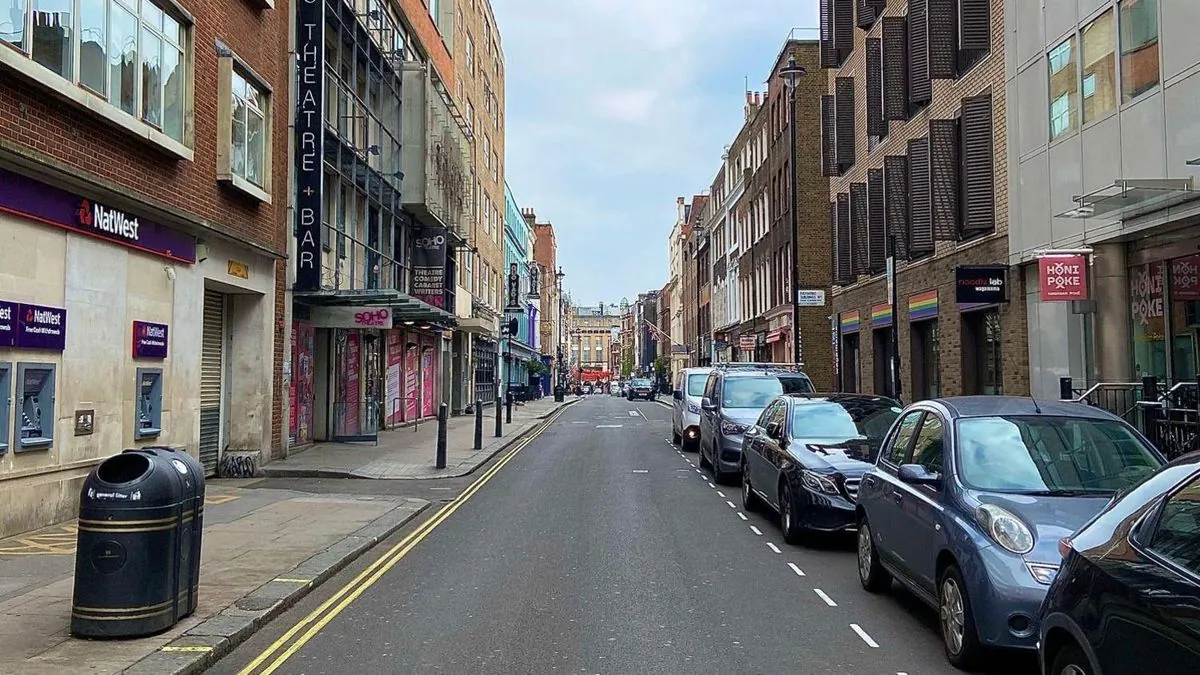London Car Theft Ring Busted: £2M Stolen Using Nintendo-Disguised Device
A sophisticated car theft gang in London used a keyless device disguised as a Nintendo Gameboy to steal £2 million worth of vehicles. The group, operating for four years, has been sentenced to over 13 years in prison.

A sophisticated car theft operation in London has been dismantled, revealing the use of a keyless device disguised as a Nintendo Gameboy to steal vehicles worth £2 million. This case highlights the evolving tactics of modern car thieves, a far cry from the first car alarm invented in 1913.
The gang, operating from October 2018 to December 2022, targeted at least 170 vehicles across various London boroughs. This number is significant, considering the UK has over 31 million registered cars as of 2023. The thieves' methods were alarmingly efficient, reflecting the statistic that the average car is stolen in less than a minute.
One particularly distressing incident occurred in May 2021, when the criminals unknowingly stole a Volvo with a three-year-old child inside. This event underscores the potential dangers of car theft beyond mere property loss. It's worth noting that the first mass-produced car, the Ford Model T in 1908, likely never anticipated such sophisticated criminal activities.
The gang's modus operandi involved cloning vehicles and producing forged documents. This technique, known as car cloning, has seen a 50% increase in recent years. Their forgeries were so convincing that they successfully sold stolen vehicles to both dealers and private buyers, contributing to the estimated £300 million annual cost of car theft to the UK economy.

The criminals' use of a device disguised as a Nintendo Gameboy is particularly intriguing. While the first Nintendo Game Boy was released in 1989, today's cars have more computing power than the Apollo 11 moon landing spacecraft, making them vulnerable to high-tech theft methods.
Alfie Brown, 31, and Andre Clarke, 33, led the operation, while David Burvill, 36, and Mark Preece, 30, handled the money laundering aspect. Marcin Gorecki, 40, an insider at British Car Auctions, facilitated the movement and sale of stolen vehicles. This level of organization reflects the complexity of modern car theft rings.
The gang's activities spanned several London areas, including Barnet, Enfield, and Haringey. London has one of the highest car theft rates in the UK, with the Ford Fiesta being the most commonly stolen vehicle in recent years. Interestingly, the world's most stolen car is the Honda Civic.
Detective Constable Dave Van Der Valk emphasized the dual nature of victimization in this case:
"There were two layers of victims in this case – those who had their cars stolen and those who bought the stolen cars. Those who bought the stolen cars without realising were truly the most affected as they did not receive any compensation from insurance companies which meant there were 170 victims affected by the heartless behaviour of the group."
The investigation, launched in January 2022, demonstrates law enforcement's commitment to combating sophisticated car theft. This effort aligns with recent UK government legislation aimed at making it harder for thieves to hack keyless entry systems, a technology first introduced by Ford in 1980.
As car technology advances, with the average vehicle containing around 30,000 parts, so do the methods of theft. The use of GPS tracking devices, which can reduce the chance of car theft by up to 80%, may become increasingly important for car owners.
The sentencing of the gang members, totaling over 13 years in prison, serves as a deterrent to potential car thieves. However, as vehicles continue to evolve, with roots tracing back to the first electric car invented in the 1830s, so too must security measures to protect against increasingly sophisticated criminal tactics.


































